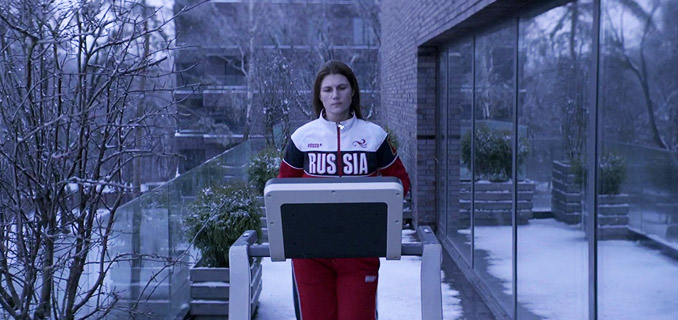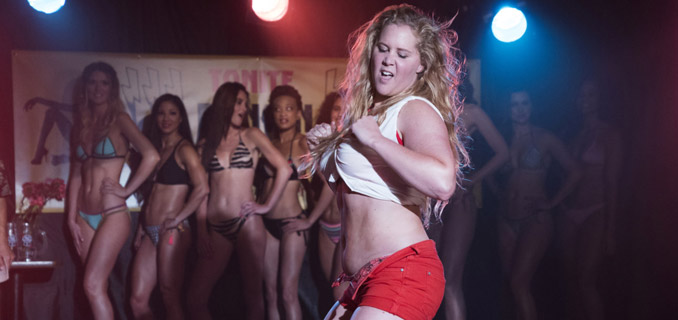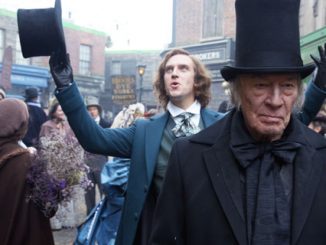
Loveless
They banned The Death of Stalin in Russia, but really – state censors chose the wrong film to get all huffy about. That satiric comedy’s mockery and depiction of one of Mother Russia’s former supreme leaders dying in a pool of his own urine was mild compared to what Andrey Zvyagintsev has served up here. And this man has form. His previous film, the brilliant but lacerating Leviathan, was actually financed by Putin’s own bureaucrats in the Ministry of Culture, but the corruption and drunkenness of epidemic proportions it depicted appalled them so much they suggested he apologise to the Russian people. Naturally the West adored it, Leviathan won festival awards by the bucket-load and wowed art-house audiences everywhere. So Zvyagintsev didn’t have to go cap in hand to domestic funding bodies ever again – Western money was no problem. “Just tell us how shit life in Putin’s Russia is again!” being the only (probably unwritten) condition…
He’s obliged – and Loveless dishes out one of the most traumatic, unsettling and harrowing experiences you’ll ever have at the cinema. And its not a horror film, not in the conventional sense anyway. Instead it focuses on one horrible family, one that should never have existed, and a lost child – Alyosha (Matvey Novikov). His bitter and distracted parents Boris (Alexey Rozin) and Zhenya (Maryana Spivak) are divorcing, and neither want custody of their 12-year-old son. Both have already got new partners and Boris even has another child on the way. Zhenya has snared a wealthy businessman and she pays more attention to her smartphone and its social media feed than her son. She doesn’t even notice he’s gone missing – not for two full days. Then the police indicate they have better things to do and tell her to just sit tight. “He’s probably at the mall.” the unhelpful cop suggests.

Then the film switches gear to the search through the degraded semi-urban wastelands around the tower blocks on the dreary, wintery outskirts of Moscow, and with quite compelling artistry, widens out to suggest a more sinister malaise – one that goes to the very core of life in post-Soviet Russia. As in Leviathan and the earlier Elena, those exterior scenes are powerful and hauntingly beautiful, in this case portraying a vast, dead and unbelievably ugly world where one poor solitary soul may have simply ceased to exist. But back inside private spaces Apple products are everywhere. Zhenya’s new partner looks like he lives in a Domayne catalogue. Pretty girls are endlessly taking selfies, the men are cold and unfeeling, and talk on the radio is obsessed with vague “apocalyptic sentiments.” Over lunch Boris asks a colleague if he thinks the world will end soon. The answer, after a thoughtful silence, “Definitely.”
Westerners who enjoy finger pointing shouldn’t feel too smug though. Zvyagintsev’s target here is not just the hollow, self-absorbed society that has risen from the ashes of the Soviet Union, but the very nature of the capitalism that’s replaced it. And that’s the world we all live now. Yes, it makes for a tough two hours, but you’re unlikely see a better film this year. MA15+ from April 25, with previews this weekend. Trailer here. ★★★★★
And this month’s dud…
I Feel Pretty
Amy Schumer’s latest attempt to repeat the success of Trainwreck groans and creaks under the weight of its good intentions. She stars as Renee, a dowdy-looking woman (Schumer is hardly that, but she tries hard to look frumpy for the role), who like so many others today, is consumed by low self esteem. Then one day she bonks her head, wakes up believing she’s absolutely gorgeous, and finds that all she really needed to snare that dream job and cute guy all the time was confidence. A positive and progressive message for all womankind – woo hoo! Except that writer-directors Abby Kohn and Marc Silverstein’s script scatters its mostly unfunny jokes so thinly and takes aim at so many targets (class, gender, sex roles, as well as the destructive weight-loss, self-improvement, cosmetic, beauty and fitness industries) that they all emerge totally unscathed. The message is muddied as well, and appears at times to be having a two-way bet. In its most cringe-worthy scene, we’re asked to laugh at an overweight girl entering a grubby bar room bikini competition and strutting about like a wanna-be stripper, yet applaud her for being “empowered” enough to do so.

Schumer is quoted in Time magazine as saying, “It’s not a perfect movie. It would be great if my role had been played by a woman of colour and there were more trans people in it, more people with disabilities.” But as well as starring in, she actually produced the movie. She could have cast whoever she wanted and rounded up as many trans people with disabilities as she could find in order to make it “perfect”. A good start though would have been a few decent jokes. M from April 19 at Palace Norton St, Palace Central, Broadway, Burwood, Rhodes and Dendy Newtown. ★1/2
Reviews – Russell Edwards

